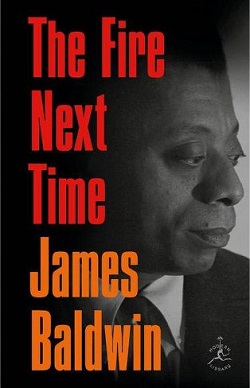Banned Books Week this year is October 1-7. The annual event, managed by the American Library Association (ALA), “highlights the value of free and open expression.” The week is designed to bring national attention to the problems of censorship and it’s more important than ever in the face of increasing attempts to ban books from public school curriculums and libraries because of content about race, LGBTQ+ people, and the accurate depiction of our nation’s history.
In 2022, the ALA identified 2,571 unique titles that were challenged (up from 1,858 the previous year and just 223 in 2020) representing the highest number of attempted book bans since they’ve been tracking the data. And this number drastically underestimates the problem because, according to the ALA’s Office for Intellectual Freedom, “Surveys indicate that 82-97% of book challenges…remain unreported and receive no media.”
In honor of Banned Book Week, American Humanist Association staff members have chosen some of their favorite banned books.
The Fire Next Time by James Baldwin
The Fire Next Time is a book containing two essays by James Baldwin. Baldwin’s first essay is a letter to his teenage nephew about the history of the United States in the context of race and racism. The second essay speaks to: Baldwin’s relationship with religion as a former teen pastor who came to an awareness that Christianity did not allow him to be his full self, his experiences regarding how and why Islam has appealed to Black civil rights activists in the U.S., and what Baldwin sees as the detriment that the Christian Church has brought to Black communities in the U.S. over centuries.
Baldwin is a powerful writer whose work is timeless. Baldwin challenges all of us to reckon with our nation’s sordid past and complacent present to establish a future where full liberation is achieved for all marginalized groups. I guess his demands for freedom were a bit too challenging so the book had to be banned.
—Lily Bolourian, Legal and Policy Director
Animal Farm by George Orwell
One of my favorite annual reads, Animal Farm is Orwell’s classic novella that pokes fun at Stalinism, communism, authoritarianism, and how absolute power corrupts absolutely. A satirical story about a band of scrappy barnyard animals overthrowing their human masters (representing the 1917 Russian Revolution) has granted Orwell’s novella a spot on many domestic and international banned book lists since it was published in 1945. The satire of Orwell’s Animal Farm has been lost on many over the years, with some calling this particular work “communist propaganda.” All I know for certain is that “all animals are equal, but some animals are more equal than others.”
—David Reinbold, Communications Manager
The Diary of a Young Girl by Anne Frank
Banning The Diary of Anne Frank shows how scared people are of facing discomfort. Going through puberty, having a crush, being hated, living in fear, dealing with family, trying to survive a war, and putting thoughts into words are challenges that Anne Frank documents in a way that connects with so many throughout time. Reading her diary encouraged me to write my own stories and learn from other’s experiences. It makes me wonder what other valuable perspectives we’ll never know due to violence, destruction, and censorship.
—Emily Newman, Senior Education Coordinator
The Forever War by Joe Haldeman
I can count The Forever War as one of a few books that has fundamentally warped my thoughts on the nature of two unescapably massive parts of human society: war and time (as the title would imply). Haldeman’s 1974 novel follows a single human soldier during an interstellar war. Due to the nature of space travel in this fictional future, he experiences time dilation each time he is deployed, and hundreds of years pass during what he perceives as a few years of military service. Largely seen as a critique of the Vietnam War, the book uses these jolts through time to examine the military-industrial complex, the absurdity of war, and—unexpectedly for the time—the role of homosexuality in society.
Over the years, The Forever War has been challenged for violence and sexual content, both of which are wholly appropriate and even necessary for this unique exploration of the future of humanity.
—Peter Bjork, Web Content Manager
The Bluest Eye by Toni Morrison
My choice is The Bluest Eye by Toni Morrison, because it has appeared on the list of Top 100 Most Challenged Books consistently since the ALA started keeping track, and it has been in the Top 10 in each of the last two years. Morrison is considered one of America’s most important novelists with the New York Times calling her a “Towering Novelist of the Black Experience.” The Bluest Eye was her first book and it won her the Nobel Prize in Literature in 1993. A powerful and disturbing novel, it explores race, class, gender, violence, beauty, and love.
—Nicole Carr, Interim Executive Director
The post Staff Picks: Our Favorite Banned & Challenged Books appeared first on TheHumanist.com.
Read More TheHumanist.com

